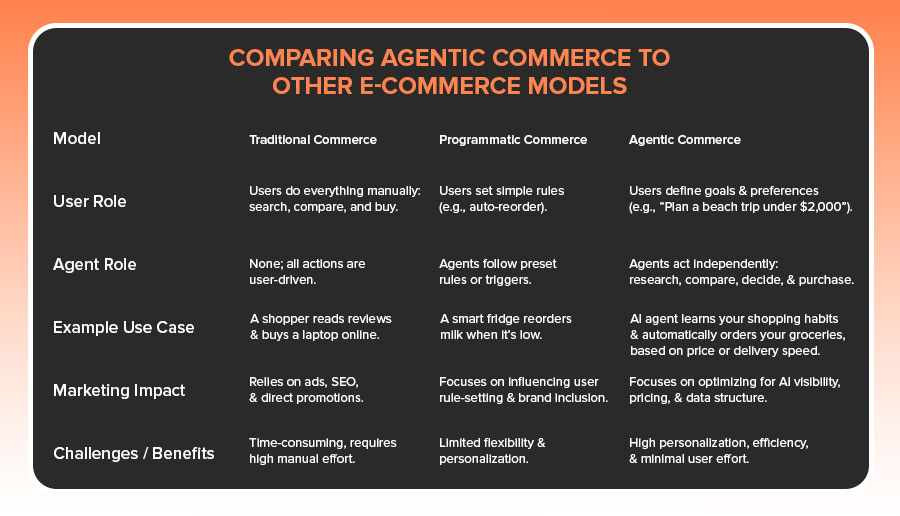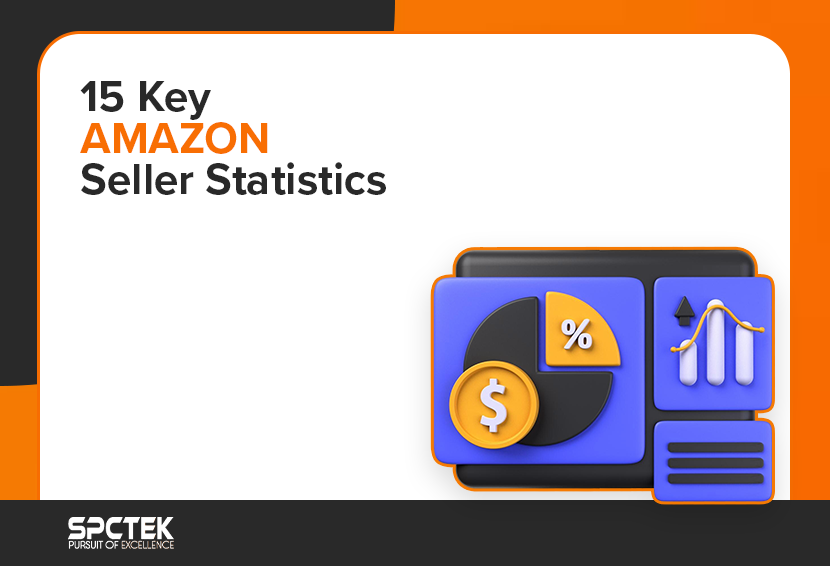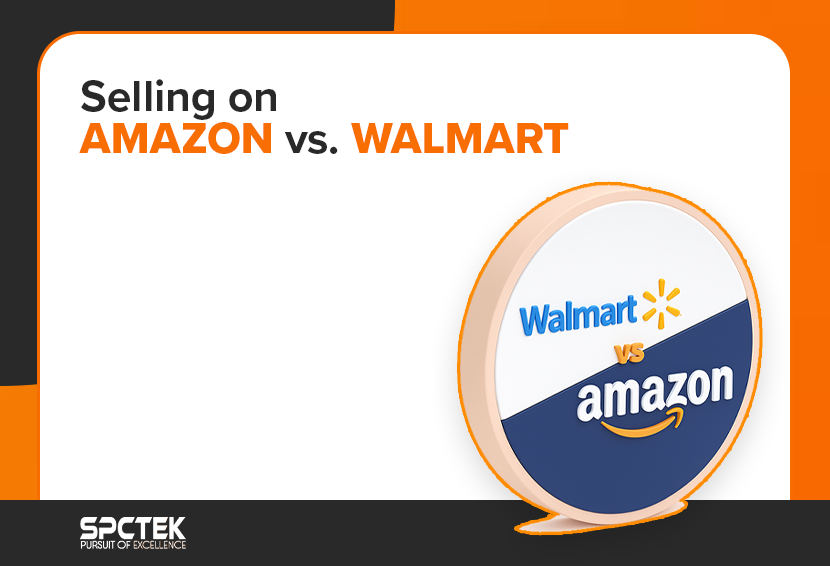Too busy to read? Listen to the article instead.
What is Agentic Commerce?
Agentic commerce is the advanced form of online shopping where AI agents independently handle tasks for buyers and sellers, such as searching for products, comparing prices, and finalizing purchases.
In traditional online shopping, users have to do everything themselves, like searching for products, checking reviews, and completing checkout. But in agentic commerce, AI handles these tasks, making shopping faster, easier, and more personalized. AI agents are more efficient than simple AI chatbots because they can take action on their own, not just answer questions.

Experts believe agentic e-commerce will transform the retail industry and is projected to drive 9 trillion dollars in e-commerce sales by 2030. This article gives you a complete picture of what agentic commerce is, how it works, its benefits, challenges, and how businesses can get ready for this major change.
How E-commerce Agents Differ from Bots, Chatbots, and Other E-commerce Models?
The main difference between bots and e-commerce agents is how they work. Agents are proactive, meaning they can plan ahead, make decisions, and coordinate tasks with very little help from the user. Bots, on the other hand, are reactive. They only respond to specific user commands and have trouble handling complex or multi-step tasks.
E-commerce agents can work on their own. They find and use business data when needed, create action plans, and carry them out without constant supervision.
For customers, these agents are much smarter than regular chatbots. They can think, learn, and adjust based on what they know. Because they are connected to sales platforms, they can access product catalogs, customer preferences, and behavior data to offer personalized and natural interactions.
Similar to how self-driving cars use real-time data to make decisions safely, commerce agents use live information to stay relevant and helpful. When a situation requires human input, the agent can smoothly hand the case over to a staff member, providing a summary, customer details, and clear next steps.
Comparing Agentic Commerce to Other E-commerce Models
To understand how agentic commerce is changing online shopping, it helps to compare it with other types of commerce.

How Can Shoppers Benefit from AI Agents?
Shopper agents serve as shopping smart personal assistants by providing assistance through the entire buying process. Their key benefits include:
1. Product Discovery
Buyers can discover items and complete purchases faster using natural language across marketplaces, e-commerce websites, or retail apps. For example, a shopper might say: “I’m camping in the northwest. Suggest gear under $500.” This simplifies the shopping process, reducing browsing and discovery time.
2. Product Recommendations
Agents analyze customer data to deliver personalized suggestions, which also improves satisfaction and loyalty. For a running shoe search, an agent might recommend items based on preferences like size, running routine, budget, age, and terrain type.
3. Order Management
Agents can manage the ordering process by choosing the best pricing and shipping options. They can also provide post-purchase assistance by tracking orders and managing returns.
How Can Sellers Benefit from AI Agents?
AI agents are transforming online selling by automating tasks. These digital assistants handle everything from product recommendations to inventory management, helping sellers save time, cut costs, and grow their businesses. Here’s a simple breakdown of the key benefits.
1. Scale Business with Ease
AI agents help businesses grow faster by automating repetitive tasks and supporting data-driven decisions. For example, agents can analyze sales trends to suggest what products to stock, freeing you to focus on big-picture goals like expanding into new markets. They can even create more agents to handle extra work, making it easier to scale without hiring more staff. This leads to higher productivity and quicker market entry for new products.
2. Streamline Operations and Save Time
AI agents simplify workflows by handling requests through a single chat interface, showing exactly what they’re doing for transparency. This reduces the need for employees to switch between tasks or systems, saving time and effort. For instance, an agent can manage customer inquiries, process orders, and update inventory all in one place, making operations smoother and more efficient.
3. Grow Sales with Personalized Recommendations
Agents use customer data to offer tailored product suggestions, increasing the chance of purchases. They can recommend bundles or extras, like suggesting a matching hat with a jacket, which can raise average order values. Personalized experiences also lower cart abandonment.
4. Cut Costs with Automated Customer Service
AI agents handle routine customer support tasks, like answering questions about orders or processing returns, reducing service costs. They resolve issues much faster than humans with higher accuracy and cut repeat inquiries. This leads to increased customer satisfaction.
5. Improve Supply Chain and Pricing
Agents optimize inventory by tracking stock levels and negotiating with suppliers, reducing costs and excess stock while saving revenue. They also enable dynamic pricing, adjusting prices in real-time based on demand or competition, which can increase profits. This keeps your business competitive and efficient.
6. Enhance Security and Simplify Shopping
AI agents prevent fraud by detecting suspicious activity as it happens. They reduce false alarms that annoy customers, and easily scale to manage millions of transactions without slowing down. By learning and improving constantly, they help fraud teams stay ahead of new threats and save them from repetitive manual work.
Also Read: New Amazon Seller Assistant Agentic AI Tool for Optimized Selling
Example of Using Agentic AI for Shopping

Imagine you’re getting ready for a three-day city trip in hot weather. You tell your agentic AI assistant, “I need stylish outfits for a 3-day city trip in hot weather.” The AI understands your goal and searches across online stores, comparing prices, checking reviews, and ensuring quick delivery.
Based on your preferences, it chooses lightweight, fashionable options like linen shirts, sandals, and breathable shorts or dresses. It applies discounts, completes the purchase, and saves your feedback to improve next time. In this way, agentic AI turns shopping into a simple, goal-based experience where the system handles every step for you.
Challenges of Using AI Agents in Agentic Commerce
AI agents can transform how businesses sell online, but they also bring challenges that need careful planning to overcome. From misinterpreting customer needs to managing costs and trust, here’s a simple guide to the main hurdles and how to tackle them.
1. Mistakes in Understanding Customer Needs
AI agents sometimes misread what customers want, leading to errors like suggesting snow boots for a beach vacation. These “hallucinations” happen when the AI struggles with complex instructions or lacks complete data. To fix this, businesses should add checks to match agent suggestions with customer preferences and regularly update AI models to handle tricky cases better.
2. Data Security and Privacy Risks
Agents store sensitive info like payment details and shopping habits, making them targets for hackers who could inject false data, like fake prices, or steal information. This could lead to fraud or eroded trust. To protect data, use secure pipelines, encryption, and anomaly detection to spot issues. Follow privacy laws like GDPR or CCPA, use tokenization (e.g., replacing card numbers with secure codes), and let customers control what data is shared through clear policies.
3. High Costs and Complexity of Setup
Setting up AI agents requires big investments in tech, training, and system upgrades, which can be tough for small businesses. Ongoing costs, like updating AI for new products, add up. To manage this, partner with AI providers like Salesforce or IBM to share the load and reduce upfront expenses.
4. Bias and Loss of Brand Control
AI agents might favor certain brands due to biased data or partnerships, limiting customer choice and potentially hurting smaller sellers. They can also bypass your website, reducing direct engagement and weakening customer loyalty.
5. Trust and Adoption Challenges
Many customers hesitate to let AI handle money decisions due to the fear of mistakes or fraud. Regulatory concerns, like who’s liable for unauthorized purchases, add complexity, especially with new AI laws emerging. To build trust, the platform should be transparent about how agents work, offer controls like spending limits, and provide demos to show benefits.
Agentic Commerce in Action: Leading Agentic Commerce Tools
Agentic commerce lets AI agents handle shopping tasks like searching, buying, and managing orders, making purchases faster and more personalized. Here are key examples of how major companies are using AI agents in 2025, with secure payments and user controls like spending limits.
1. Amazon’s “Buy for Me” Feature: Amazon’s beta AI agent buys from third-party sites within the Amazon app. For example, it can find and purchase Rothy’s shoes not sold on Amazon, handling checkout and shipping.

Source: Amazon
2. PayPal’s Agent Toolkit and Perplexity Partnership: PayPal’s toolkit lets AI apps process payments, and Perplexity’s “Buy with Pro” enables purchases in chat, like booking concert tickets via Ticketmaster.
3. Mastercard Agent Pay and Visa Intelligent Commerce: Mastercard and Visa’s new platforms enable AI agents to make purchases on behalf of consumers using secure, tokenized payment credentials.
4. Google’s Shop with AI Mode: Google’s new agentic checkout feature will track prices and auto-buy on your behalf with Google Pay when items hit your criteria. This agentic feature will be launched in the coming months.

Source: Google
5. Enterprise Automation Platforms: B2B platforms like Salesforce’s Agentforce allow you to build, deploy, and manage autonomous AI agents that handle tasks like customer service, sales, marketing, and commerce.
6. OpenAI’s Instant Checkout: Instant Checkout lets you purchase products directly within ChatGPT from participating merchants. When browsing shopping results, look for a “Buy” button on the product detail page or sidebar. This allows you to securely complete your purchase right in ChatGPT, without having to visit.

Source: OpenAI
Also Read: How Amazon Sellers Can Leverage AI for Smart Selling
How to Prepare Your Businesses for Agentic Commerce?
As AI agents increasingly control transactions, businesses must transition from human-centric to agent-friendly systems. These are some of the key steps that businesses must take to remain competitive.
1. Use Machine-Readable Data: Make your product data clear and easy for AI to understand with structured formats like schema markup. Include details like product descriptions, prices, and stock levels. For example, clear data helps AI agents quickly find and recommend your products and increase visibility on platforms.
2. Share Data Through Simple APIs: AI agents need real-time access to your product details, inventory, prices, and shipping information to act quickly. Create well-documented APIs (like digital pipelines) that let agents check things like stock levels or a customer’s past purchases. Ensure your APIs follow industry standards and can handle many requests at once.
3. Centralize Customer Data for Personalization: Use Customer Data Platforms (CDPs), like Segment or Tealium, to gather all customer information (purchase history, preferences, and browsing behavior) into unified, permission-based profiles. These profiles allow AI agents to offer highly personalized suggestions.
4. Keep Your Data Accurate and Up-to-Date: Keep your data clean and up-to-date by auditing preferences, usage, and post-purchase info. Fix issues like outdated stock records to avoid failed transactions. Accurate data helps agents make better decisions for customers.
5. Incorporate Multimodal Data: Enhance your product feeds with multimodal data, like images or videos that AI vision models can analyze, alongside real-time updates to keep information current. Adding visuals, like a video of a jacket’s features, helps agents better understand and promote your products, improving their appeal to shoppers.
6. Optimize for AI Search: AI agents search differently than humans, so focus on clear, detailed product data rather than flashy website designs. Add specifics like product features, customer reviews, and technical details, like “waterproof hiking boots, size 9, 4.5-star rating”, to help agents find and recommend your items. This “semantic SEO” ensures your products show up in AI-driven searches, increasing their visibility to shoppers using digital assistants.
7. Set Up Secure Data Channels: Share customer preferences safely while following privacy laws like GDPR or CCPA. For example, use anonymized data to personalize suggestions without exposing personal info. This builds trust and keeps you compliant.
8. Test How AI Agents Use Your Systems: Run tests to see how agents interact with your platform, like handling out-of-stock items or returns. These tests help spot and fix issues, ensuring smooth performance for AI-driven tasks.
9. Build Trust with Transparency: Be open about how AI works, how you protect data, and how you verify transactions. Use strong security like FIDO authentication and let customers set spending limits. Show benefits like easy reordering to gain trust and encourage AI use.
10. Upgrade Systems for High-Speed AI Activity: Ensure your fraud detection, order management, and customer service can handle fast, automated AI activity. For example, your fraud system should process quick transactions without errors. Scalable systems keep everything running smoothly.
11. Stay Compliant and Ethical: Follow data privacy and AI regulations to protect your brand. For example, complying with GDPR ensures responsible data use. Ethical AI practices, like prioritizing customer needs, build trust and reduce risks.
12. Educate Your Customers: Explain how AI agents work with clear guides, demos, and support. Offer updated policies and dedicated help for AI-related questions. For example, a demo showing how an agent simplifies shopping can ease concerns and encourage customers to embrace AI.
The Future of Agentic Commerce
Gartner forecasts that by 2028, 33% of enterprise software applications will adopt agentic AI, up from less than 1% in 2024. This rise comes from agentic AI’s ability to increase productivity and solve complex business problems. Unlike older AI systems that required constant human input and detailed prompts, agentic AI operates independently by setting goals, making decisions, and adapting in real-time.
In commerce, these agents can anticipate customer needs, analyze massive amounts of data, and act on insights instantly. In the near future, humans and AI agents will work together to create highly personalized, conversion-driven shopping experiences.
Got More Questions?
A: An e-commerce agent is an AI-powered system designed to perform specific online retail tasks independently. It can learn from data, make decisions, and take actions, such as recommending products, responding to customers, or managing backend operations, without requiring constant human intervention.
A: AI agents make online shopping faster, more personal, and more convenient. They analyze customer behavior and preferences in real time to recommend products that match individual tastes. These agents can answer questions instantly, assist with order tracking, and even predict what a customer might need next.
A: Intelligent agents play several roles across the e-commerce ecosystem. They manage product recommendations, personalize marketing messages, optimize pricing, detect fraud, and handle customer service inquiries through chatbots. Some agents also monitor inventory levels, analyze market trends, and automate advertising campaigns based on data-driven decisions.






